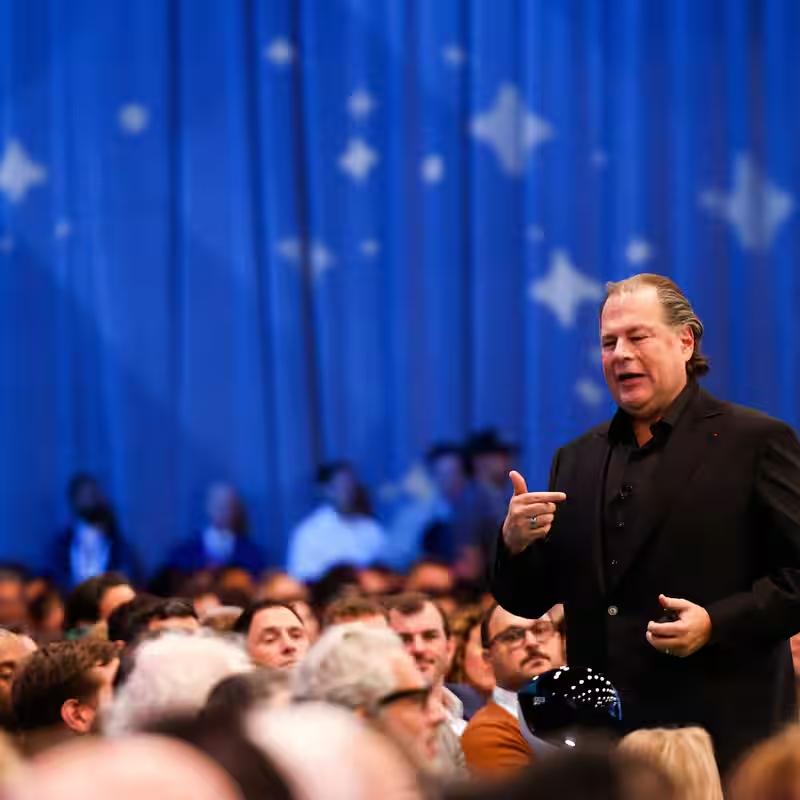Table of Contents
- Salesforce’s ICE Controversy Explained
- A Surprising Political Pivot?
- Allies Turn Against Benioff
- Employee Reactions and Internal Tensions
- Is This Part of a Bigger Tech Trend?
- What’s Next for Salesforce?
- Sources
Salesforce’s ICE Controversy Explained
Marc Benioff, the CEO of Salesforce and once hailed as San Francisco’s most generous progressive philanthropist, is now facing fierce criticism after internal documents revealed the company pitched its AI tools to U.S. Immigration and Customs Enforcement (ICE) during the Trump administration.
According to The New York Times, the leaked five-page memo outlined how Salesforce could help ICE “nearly triple its workforce” using artificial intelligence. While Salesforce has worked with ICE under previous administrations—including Obama and Biden—the timing and tone of this outreach, coupled with Benioff’s recent public alignment with Trump-era policies, have ignited a firestorm.
A Surprising Political Pivot?
Benioff’s growing embrace of former President Donald Trump marks a stark departure from his long-standing progressive image. The billionaire tech leader recently voiced support for deploying the National Guard as law enforcement in San Francisco, echoing Trump’s own rhetoric.
“We don’t have enough cops, so if they can be cops, I’m all for it,” Benioff told The Times.
This shift has alienated many longtime supporters in a city known for its liberal values—and raised questions about whether corporate leaders are compromising ethics for access and contracts.
Allies Turn Against Benioff
The backlash isn’t just coming from activists. Ron Conway, a prominent venture capitalist, Democratic donor, and close friend of Benioff, resigned from the board of Salesforce’s philanthropic arm in protest.
“I now barely recognize the person I have so long admired,” Conway wrote in his resignation letter—a stinging rebuke that underscores the depth of the rift.
San Francisco officials also weighed in. Danny Sauter, a member of the city’s Board of Supervisors, called Benioff’s involvement with ICE “deeply concerning,” especially given his public image as a champion of the city.
Employee Reactions and Internal Tensions
Inside Salesforce, the mood is tense. In an internal Slack channel discussing the ICE memo, some employees responded with fire emojis. One wrote sarcastically: “I wish you the best of luck with this one!”
This echoes past employee uprisings at tech giants like Google and Amazon over government contracts. While no mass walkout has occurred yet at Salesforce, the discontent is palpable—and could escalate.
Is This Part of a Bigger Tech Trend?
Benioff isn’t alone. Apple, Google, and Meta all contributed to Trump’s inaugural committee, and their CEOs have since attended White House events during his presidency. The U.S. government is Salesforce’s largest customer, with billions in federal contracts at stake.
But as tech workers grow more vocal about ethical boundaries, companies may face a tough choice: profit or principle?
What’s Next for Salesforce?
With public trust eroding and internal morale wavering, Benioff’s next moves will be closely watched. Will he double down on government partnerships—or attempt to repair his progressive credibility?
One thing is clear: in today’s hyper-politicized climate, even tech titans can’t stay neutral.




